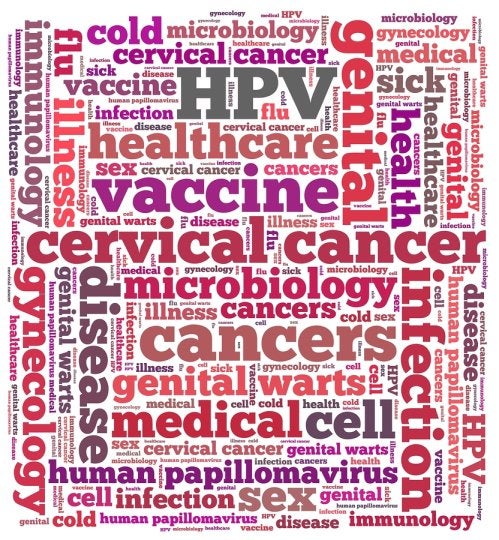-
Reducing Your Risk of Cervical Cancer
The cervix is the lower part of your uterus, above the vagina. The endocervix is the section of the cervix that is near the uterus and the part of the cervix next to the vagina is the exocervix. The transformation zone is the place at which the main cells of the endocervix (glandular cells) and the main cells of the exocervix (squamous cells) meet each other. Most types of cervical cancers originate in this transformation zone. However, cervical cancer doesn’t begin suddenly. Your gynecologist can detect pre-cancerous changes of the cervical cells, such as dysplasia and cervical intraepithelial neoplasia. You could also consult your gynecologist about ways of reducing your risk of cervical cancer.

Have Regular Pap Tests
A Pap smear is a sample of cells from your cervix that is analyzed in a lab. The results of the Pap test may indicate whether you could have abnormal changes of the cervix that may lead to cervical cancer. If your Pap test results are normal, your chances of developing cervical cancer in the near future are low. If your test results are abnormal, your gynecologist may recommend monitoring or treating the potentially pre-cancerous changes.
Get Vaccinated
The human papilloma virus (HPV) is a significant risk factor of cervical cancer . There are vaccines available that can protect you from acquiring the HPV strains that can cause cancers of the cervix, vulva, and vagina. Since the HPV vaccine is only recommended for individuals of a certain age, it’s important to speak with your gynecologist about getting vaccinated as soon as possible.
Practice Safe Sex
In addition to receiving the HPV vaccine, you can reduce your risk of acquiring HPV by practicing safe sex. Always use a condom even if you take birth control pills. Limiting your number of sexual partners and avoiding having sex at an early age are other steps that may reduce your risk.
Avoid Smoking
Smoking can increase your risk of squamous cell cervical cancer. If you smoke and you would like to quit, a healthcare provider can help you.
The gynecologists at Washington Surgi-Clinic are your partners in well-woman care. Our providers of compassionate gynecology services near Washington, D.C. offer extensive patient education to help women take control of their wellness. Give us a call at (202) 659-9403 if you would like to schedule an appointment for STD testing, HPV treatment, or other gynecology services.
-
What to Expect from a Pap Test
If you’ve scheduled your first Pap smear at a gynecologist’s office, you’re taking an important step toward safeguarding your health. Pap tests allow your gynecologist to check for abnormal changes of the cervix, some of which may lead to cervical cancer. It’s perfectly normal to experience a little anxiety about having a Pap smear. However, staying relaxed and easing muscle tension in your lower body can make the test proceed more quickly.

Preparing for Your Appointment
When you call the gynecology office to schedule the Pap test, be sure to choose a date on which you do not expect to have your period. It’s generally best to schedule the test 10 to 20 days after the first day of your period. During the two days prior to your appointment, you should avoid certain things that may interfere with the results of your test. This includes using tampons, vaginal deodorant sprays or powders, vaginal creams, and vaginal suppositories. You should also avoid douching and having sex.
Undergoing the Exam
At the gynecology office, you’ll have privacy while you disrobe and put on a hospital gown. Then, you’ll sit on the edge of the exam table, place your feet in the stirrups, and lie back on the table. You’ll be asked to separate your legs and to relax your muscles. Some women may experience some minor discomfort during the exam. It can be helpful to take deep, steady breaths. Your gynecologist will examine your external genitalia before gently inserting a speculum. This device widens the opening so that the gynecologist can examine the cervix and vaginal walls. Then, the gynecologist uses other medical tools to collect a sample of cervical cells. After the provider collects the sample and removes the medical devices, he or she performs a manual internal examination. The gynecologist inserts two fingers into the vagina and places the other hand on your abdomen. This allows your gynecologist to check for any abnormalities in the pelvic region.
If you have any questions about your upcoming appointment at Washington Surgi-Clinic , you can call us at (202) 659-9403. Our state-of-the-art medical facility provides an unparalleled level of professional and courteous personal care for women. In addition to annual Pap tests and pelvic exams, our gynecology team provides STD testing, morning after pills, and pregnancy termination near Washington, D.C.
-
Pregnancy Termination in the First Trimester
During the first trimester, or up to 12 weeks of pregnancy, women may choose to undergo pregnancy termination with chemical or surgical abortions. If the pregnancy is less than six weeks by menstrual age, the patient may choose the chemical method. With this type of first trimester abortion, the patient takes a pill that contains mifepristone, which breaks down the uterine lining by inhibiting progesterone. After 24 to 48 hours, the patient takes misoprostol, a pill that results in the expulsion of the pregnancy in a manner similar to miscarriage. It may take a few hours to abort the pregnancy or it may take a few days. Women can expect to have a follow-up appointment with a gynecologist.

A gynecologist can perform a surgical abortion as soon as the pregnancy can be visualized on an ultrasound exam, which is usually five weeks by menstrual age or three weeks after conception. For a first trimester abortion, the gynecologist will perform suction dilatation and curettage (D&C), which involves gently suctioning out the uterine contents.
For safe, confidential, and legal pregnancy termination near Washington, D.C., you can turn to the gynecology team at Washington Surgi-Clinic. Call (202) 659-9403 to arrange an appointment or visit us on the Web to read more about chemical and surgical abortions , along with our other services, which include STD testing.
-
How IUDs Work
If you’re evaluating birth control methods, you may wish to ask your gynecologist about intrauterine devices (IUDs). An IUD is a small, T-shaped device that your gynecologist can insert into your uterus to prevent unwanted pregnancies. IUDs do not protect against sexually transmitted diseases, so you may still want to talk to a doctor about STD testing. One type of IUD is coated in copper. It works by creating an environment in the uterus that is toxic to sperm.
As you’ll learn when you watch this video, the other type of IUD slowly releases progesterone to thicken the cervical mucus. The hormonal IUD is effective for up to five years, while the copper IUD is effective for up to 10 years. Before getting an IUD, talk to your gynecologist about the benefits and risks.
Washington Surgi-Clinic provides a comprehensive range of birth control methods in Washington, D.C., including IUDs, pills, patches, injections, and emergency contraception. Visit our website to view our gynecology services or call us at (202) 659-9403.
Recent Posts
Popular Posts
categories
- Uncategorized
- STD
- Washington Surgi-Clinic
- Abortion
- Pregnancy
- Pap Smears
- Birth Control Options
- HPV
- Gynecologist
- Pregnancy Test
- Abortion Safety
- IUD
- Pregnancy Termination
- First Trimister
- Cervical Cancer
- Morning After Pill
- Birth Control Pills
- Chlamydia
- Birth Control Shot
- Gonorrhea
- STD Testing
- Birth Control Implant
- Pelvic Pain
- Birth Control Patch
- HIV
- HPV Vaccine
